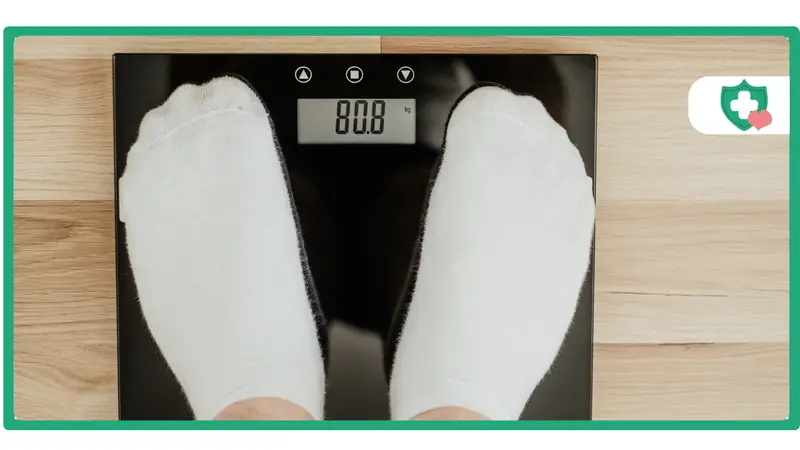What is Insulin? Understanding the Body’s Natural Regulator
First, let’s talk about insulin. Insulin is something your body makes naturally. Your pancreas, which is an organ in your body, produces insulin. What does insulin do? Its main job is to help sugar from your food get into your body’s cells. Your cells then use this sugar for energy. Think of insulin as a key that unlocks the door to your cells so sugar can go in.
Sometimes, the body doesn’t make enough insulin. Or, the body’s cells don’t respond well to insulin. This can lead to diabetes. So, insulin can also be a medicine. Doctors give insulin medicine when your body doesn’t make enough (like in Type 1 diabetes). Or, they give it when your body doesn’t use its own insulin well (like in some cases of Type 2 diabetes).
This medicine acts like a replacement or a helper for your body’s own insulin. There are different kinds of insulin medicine. Some work for a long time, and others work quickly for a short time.
What is Tirzepatide? A Newer Approach to Management
Now, let’s talk about Tirzepatide. Tirzepatide is a newer medicine. It’s known as a GLP-1 and GIP receptor agonist. That sounds a bit technical, but we’ll explain. How does Tirzepatide work? It does a few smart things:
- It tells your body to release its own insulin, but mainly when your blood sugar is high.
- It helps lower a hormone called glucagon, which usually raises blood sugar.
- It slows down how quickly your stomach empties after you eat.
- It helps you feel full, which can often lead to weight loss.
So, Tirzepatide doesn’t replace your body’s insulin directly like insulin medicine does. Instead, it helps your body’s own systems work better. For a deeper dive into its chemical makeup, check out our article on what Tirzepatide is made of. (Assuming you have or will have this article).
The Big Question: Is Tirzepatide Insulin? Let’s Clarify
Let’s get straight to the point again. Is tirzepatide insulin? No, it is not. Both medicines can help with blood sugar, but they are very different. They work in totally different ways.
Why do people get confused? Well, both Tirzepatide and insulin are often given as injections. And both can be used for diabetes. So, some people might think they are similar, or that Tirzepatide is just a new kind of insulin. But it’s important to know that Tirzepatide helps your body manage things, including how it releases its own insulin. It isn’t insulin itself.
Key Differences: Tirzepatide vs. Insulin Head-to-Head
Let’s put Tirzepatide and insulin side-by-side. This will help us see the main differences clearly.
- How They Work:
- Insulin: This medicine is insulin. It directly gives your body the insulin it needs. This helps sugar get into your cells for energy.
- Tirzepatide: This medicine works on special spots in your body called GLP-1 and GIP receptors. When it does this, it:
- Tells your body to make more of its own insulin, but only when your blood sugar is up.
- Helps lower glucagon (the hormone that raises blood sugar).
- Makes your stomach empty slower, so you feel full longer.
- Helps you feel more satisfied after eating.
- What They Are:
- Insulin (medicine): This is a man-made version of the natural insulin hormone that humans produce.
- Tirzepatide: This is a man-made peptide. It’s designed to be like natural hormones in your gut called incretins.
- Who Uses Them:
- Insulin: This is essential for people with Type 1 diabetes. Their bodies don’t make insulin. It’s also used by many people with Type 2 diabetes if other medicines aren’t enough, or if their pancreas isn’t making enough insulin.
- Tirzepatide: This is used for Type 2 diabetes. It’s also approved for chronic weight management (the brand name for this use is Zepbound).
- Effect on Weight:
- Insulin: Sometimes, taking insulin can lead to weight gain. This is because insulin helps your body store sugar.
- Tirzepatide: This medicine often helps people lose a good amount of weight.
- Risk of Low Blood Sugar (Hypoglycemia):
- Insulin: There’s a higher risk of low blood sugar with insulin. This can happen if the dose is too high, or if you don’t eat enough, or if you exercise a lot. People using insulin need to watch their blood sugar carefully.
- Tirzepatide: The risk of low blood sugar is lower when Tirzepatide is used by itself. This is because it mostly tells your body to make insulin when your blood sugar is already high. However, the risk can go up if you take Tirzepatide with insulin or certain other diabetes pills.
- How Often You Take It (Administration Frequency):
- Insulin: This can vary a lot. Some people take it several times a day. Others take it once a day, depending on the type of insulin.
- Tirzepatide: This is usually taken as an injection once a week.
See? They really are quite different!
Can Tirzepatide Replace Insulin?
This is a very important question. Let’s break it down by diabetes type.
For People with Type 1 Diabetes: The answer here is no. People with Type 1 diabetes must have insulin to live. Their bodies do not make their own insulin. Tirzepatide cannot replace the insulin they need.
For People with Type 2 Diabetes: This is a bit more complex. Sometimes, Tirzepatide can help people with Type 2 diabetes. It might help them lower their dose of insulin. In some cases, they might even be able to stop taking insulin. But this must always be done under a doctor’s close watch. Why might this happen? Because Tirzepatide can help the body make its own insulin better. It can also help the body use insulin more effectively.
It’s vital to understand that is tirzepatide insulin is a question with a clear ‘no’ answer. So, it cannot ‘replace’ insulin in the sense of being the same thing. But, for some people with Type 2 diabetes, it might reduce their need for insulin medicine.
Using Tirzepatide and Insulin Together
Can someone take both Tirzepatide and insulin at the same time? Yes, sometimes they can. For some people with Type 2 diabetes, a doctor might prescribe both medicines. Why would they do this? If one medicine alone isn’t getting the blood sugar to a good level, using both together might work better.
But using both means the doctor has to be very careful with the doses. This is to lower the chance of blood sugar going too low (hypoglycemia). This must be managed by a doctor.
Which is Right for You? Consulting Your Doctor
So, which medicine is better? Tirzepatide or insulin? There’s no single answer for everyone. The best choice depends on many things. What type of diabetes do you have? What’s your overall health like? What are your treatment goals? Are you taking other medicines?
Only your doctor or a healthcare provider can look at all these things. They can then help decide the best treatment plan just for you. Discuss your options with a medical expert. Tirzepatide Medics offers information to help you prepare for that conversation.
Conclusion
To sum it all up, Tirzepatide and insulin are very different. They work in different ways and have different jobs in managing health. Tirzepatide helps your body control its own sugar levels and can also help with weight loss. Insulin directly gives your body the insulin it might be missing or not using well.
So, is tirzepatide insulin? Definitely not. But both medicines can be very helpful for managing diabetes. Sometimes, they can even be used together if your doctor thinks it’s best. Always talk to your doctor for advice that’s right for you.
Frequently Asked Questions
Is Mounjaro/Zepbound a type of insulin?
No, Mounjaro and Zepbound are brand names for Tirzepatide. Tirzepatide is not insulin. It’s a different kind of medicine called a GLP-1 and GIP receptor agonist. It works in a different way than insulin.
Does Tirzepatide make your body produce insulin?
Yes, one of the ways Tirzepatide works is by helping your pancreas make more of its own insulin. But it mainly does this when your blood sugar levels are high, which is smart.
Can I stop taking my insulin if I start Tirzepatide?
No, you should never stop taking your insulin or change your dose without talking to your doctor first. Tirzepatide might help some people with Type 2 diabetes use less insulin, but a doctor must manage this very carefully.
What are the main benefits of Tirzepatide compared to just insulin for Type 2 diabetes?
For some people with Type 2 diabetes, Tirzepatide can help control blood sugar well. It can also lead to significant weight loss.
















